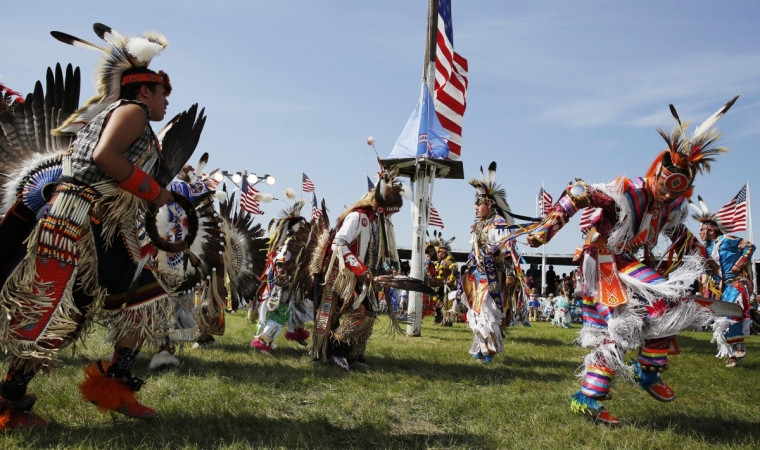Some Native American tribes want to grow their own pot and smoke it, too

FLANDREAU, S.D. (Christian Examiner) - If some American Indian tribes have their way reservation lands may soon be used to grow and sell marijuana. The Flandreau Santee Sioux in Flandreau, South Dakota became the first Native American tribe June 11 to legalize the cultivation, consumption, possession and distribution of marijuana on tribal lands.
The tribe's move to sell the controversial drug came less than a year after the United States Department of Justice issued a memo in 2014 allowing more than 300 federally recognized Indian tribes to take part in the marijuana industry.
The growth and sale of marijuana on tribal lands is allowed as long as the tribes follow the same regulations required of states where the drug has been legalized, according to the DOJ. Tribes must also ensure the marijuana they cultivate and sell stays on tribal lands.
Tribes, like the Flandreau Santee Sioiux, aren't the only ones interested. The legalization of marijuana for recreational and medical use in the United States is growing and currently 23 states and the District of Columbia have legalized some form of marijuana use.
Tony Reider, 38, is president of the Flandreau Santee Sioux. His tribe has plans to sell close to 60 strains of the drug. Reider believes marijuana sales could reach $2 million per month.
There's a number of tribes that are very aggressively looking into [the marijuana industry] and trying to sort through all the legal issues. The rest of us are just kind of on the sidelines watching.
Other tribes are using more caution and have adopted a 'wait and see' attitude, citing the rampant alcoholism on Indian reservations and the prospect of a new less tribal-supportive administration after the 2016 presidential election.
Some tribes, including many in Washington state, are also seeking guarantees from the government allowing them to retain millions of dollars in grant monies and contracts if they choose to sell a drug still banned by Congress, according to W. Ron Allen, Tribal Council Chairman of the Jamestown S'Klallam Tribe.
"We're not getting definitive answers back," Allen said. "There's a number of tribes that are very aggressively looking into [the marijuana industry] and trying to sort through all the legal issues. The rest of us are just kind of on the sidelines watching."
The Department of Justice memo mentions eight priorities for United States attorneys to use when enforcing the growth and use of marijuana in their districts, some of which include tribal lands. The priorities range from preventing marijuana distribution to minors, to preventing violence and the use of firearms in the cultivation and distribution of marijuana.
With plans to sell both recreational and medical marijuana, Reider said the Flandreau Santee Sioux tribe may set up something like a pot bar on tribal property to control where the drug is consumed and prevent it from leaving tribal lands.
Though marijuana could deliver a financial boon similar to gambling casinos to tribes, the proximity of the drug may prove too difficult for Native Americans to resist.
For now, it seems some tribes, such as the Flandreau Santee Sioux, want it both ways: the right to grow their own pot – and smoke it, too.
Others involved in the debate, such as Kevin Sabet, president of the anti-legalization group Smart Approaches to Marijuana, hold firm to the idea that selling pot is a dangerous road for any tribe to go down.
"If we think alcohol has had a negative effect on young people on tribal lands -- we ain't seen nothing yet," Sabet said.
RELATED ARTICLES:
Kids under 5 most at risk from legalizing marijuana
Texas nearly legalizes marijuana
Colorado schools to be first nationwide allowing student use of medical marijuana